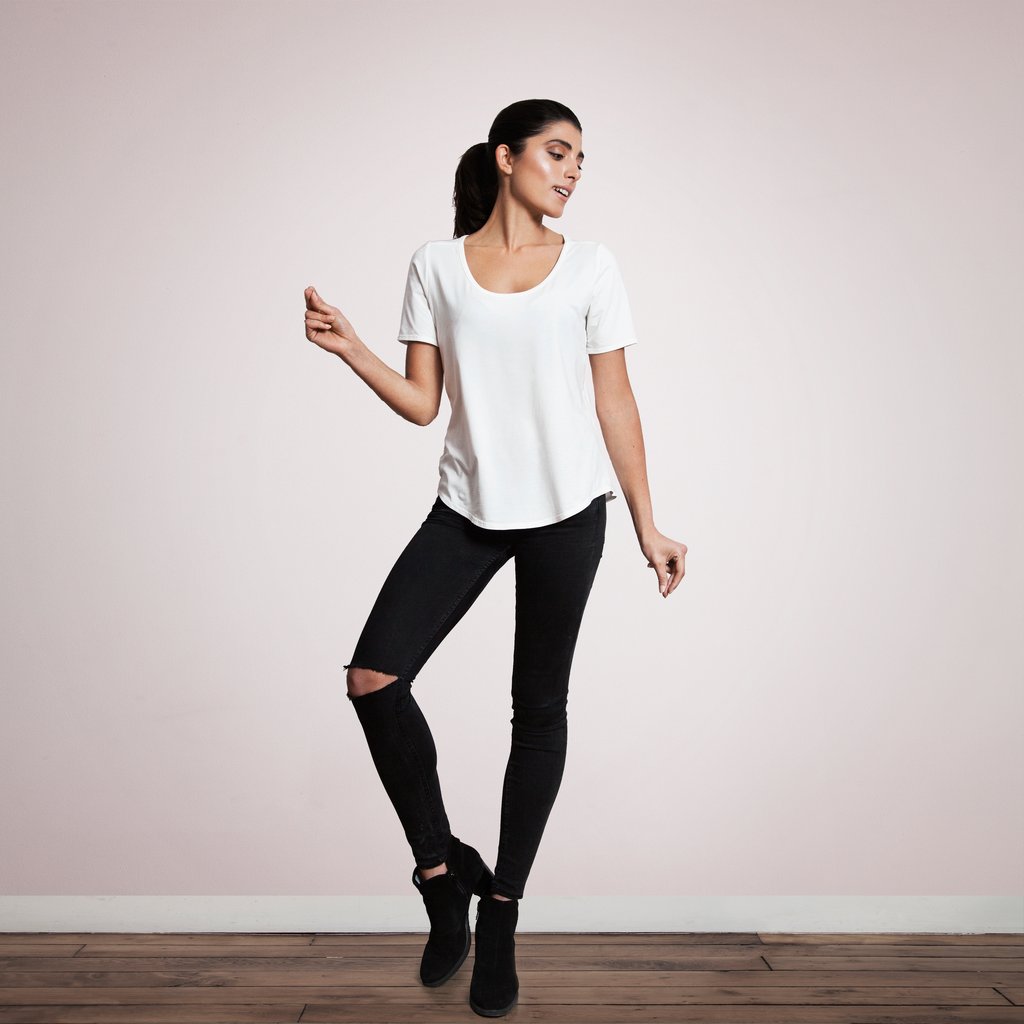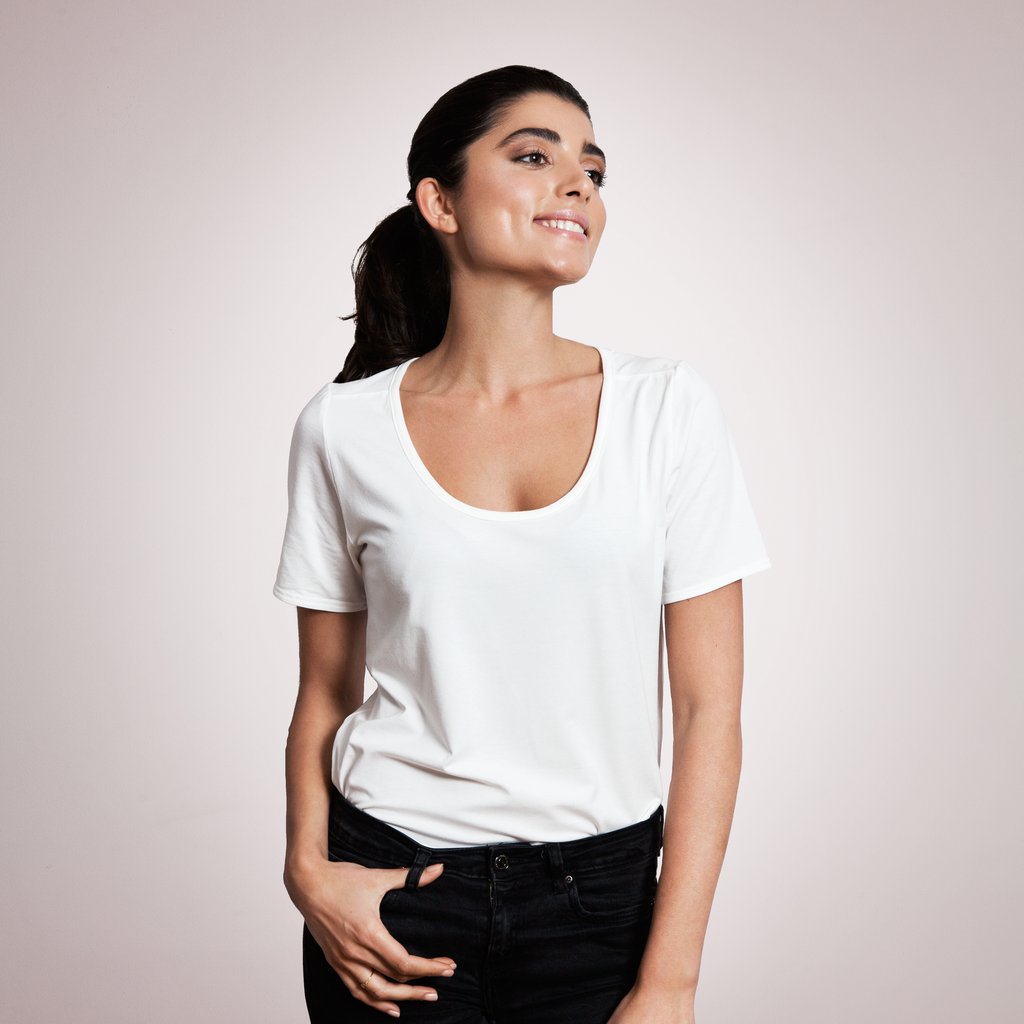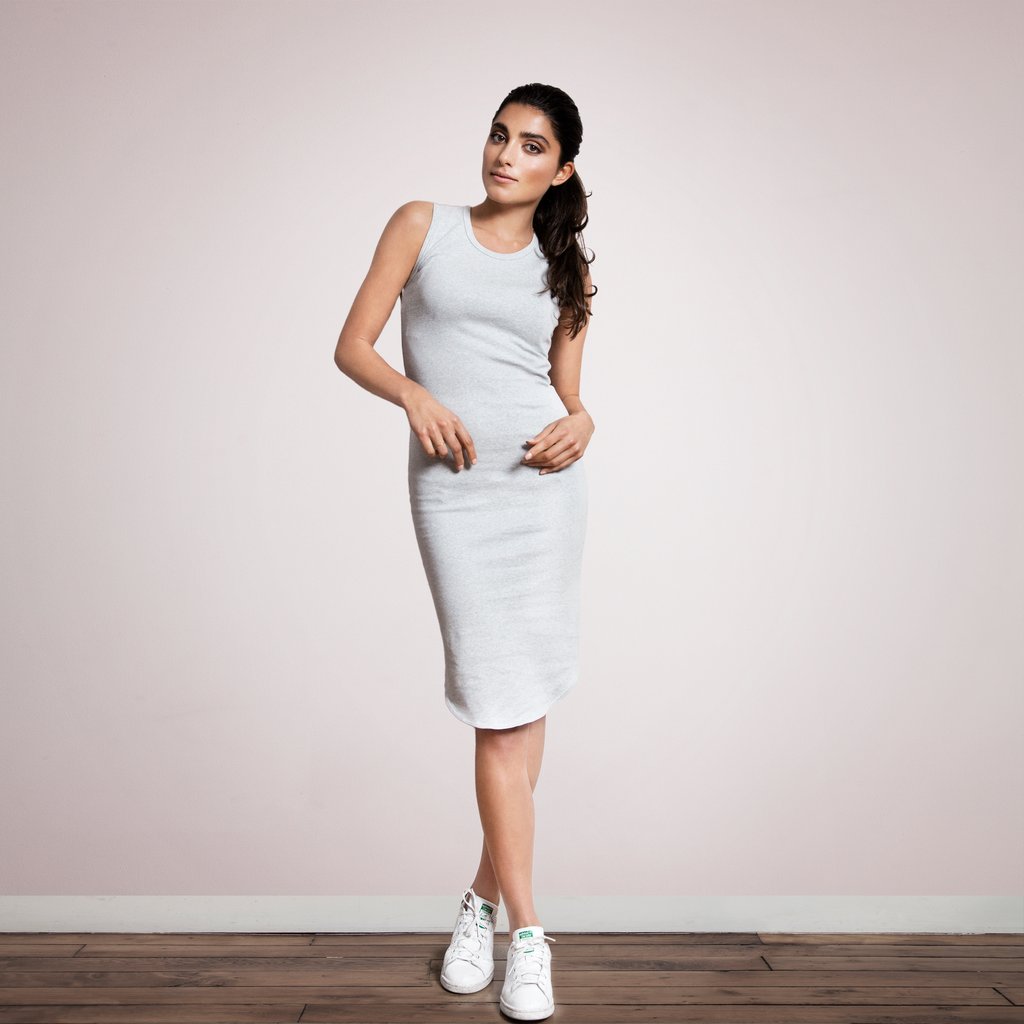Apparently, organic has been a thing in French women’s grocery lists for years, but what does it take to introduce the word ‘organic’ into their everyday fashion choices? Sometimes the answer lies in an accidental research trip to the Himalayas in Nepal, during which long-term friends Kachen Hong and Alexis Assoignon experienced their own Eureka! moment, leading them a step closer to revolutionising the world of wardrobe staples in France. Les Sublimes surely serves as a complement filling in the gaps in the quintessential, timeless 'Parisian chic' style directory…in a delicately sublime way.
Les Sublimes A/W16 Campaign
What does Les Sublimes represent?
Co-founder Alexis Assoignon: Les Sublimes is France’s first sustainable luxury brand sold exclusively online. Les Sublimes is a brand that doesn’t make you compromise on your needs, while also making you look and feel good on the inside and out. That is what we define as being Sublimes: the combination of inner and outer beauty.
What are the ethical principles you have incorporated into your brand?
[When creating Les Sublimes] we were driven by a desire to improve environmental and social conditions around the world, as well as a desire to create sustainable wardrobe alternatives that we wanted and couldn’t find in the marketplace. In fact, no one in France is making the everyday clothing pieces — those items that make up 80% of our wardrobes — in a socially-fair and eco-friendly way. We were sick of having to choose between style, affordability, comfort, quality and ethics.
As a responsible company, we integrate ethics and transparency into every element of our business, from design and production, to corporate culture and customer service.
What’s the personal story that links together the creation of Les Sublimes?
My co-founder Kachen Hong and I have been good friends for over 10 years (we met while studying at Sciences Po Paris). In 2014 we both quit our jobs and met in Nepal for 2 weeks. We had both been thinking about starting something of our own in our respective fields (Kachen, a Consultant in sustainable consumption and Alexis, a fashion Account Executive), but we weren’t sure where to start.
In Nepal everything started falling into place. There were long, scenic treks with lots of time to talk and share ideas. We also went to visit a group of Tibetan refugees spinning yarn for weaving and a small group knitters making sweaters in a remote village. We saw the women working so hard, for so many hours, and earning so little. Less than a $1 per day! We could see firsthand the immense need for better quality jobs and living wages. Speaking with the women, they felt hopeless about their employment situation. We quickly discovered that by marrying our own skills in fashion and sustainability, we could create a solution for these women in underprivileged communities, and also solve a personal problem — the lack of desirable and ethical, yet affordable fashion in the marketplace. So, in the misty landscapes of the Himalayas, Les Sublimes, a lifestyle brand for worldly women with big hearts, was born.
I see every new startup as a collective effort, no single person can change the world alone. Bring an example of the power of teamwork.
I couldn’t agree more. Within the Les Sublimes team itself we choose to hire based on personality and purpose rather than a fancy resume or a corporate background. Because everyone on board is motivated by something bigger than themselves, the dynamics of the team are totally different. The work will always be rewarding because we share a common goal of making a difference. We also recognise that every person on the team has value.
“We quickly discovered that by marrying our own skills in fashion and sustainability, we could create a solution for these women in underprivileged communities…[…]. So, in the misty landscapes of the Himalayas, Les Sublimes, a lifestyle brand for worldly women with big hearts, was born.”
We also believe that there is enough room on this planet for all of our [like-minded] businesses to thrive. So if we can work with our fellow entrepreneurs to reach our collective goals, then we are all better off. That’s one of the reasons why we choose to be fully transparent as a brand.
Describe your personal style. How is sustainability represented in your personal wardrobe choices?
My style is a mix of modern West Coast staples and effortless Parisian classics. I love to dress in something easy and comfortable, but still look chic and presentable in the city. Influenced by French dressing, I’ve always taken a position of quality over quantity, investing in well-made classics and essentials that I can easily mix and match with other items in my wardrobe. My mom always took me along to second-hand stores growing up, showing me how to find hidden gems at bargain prices. Nowadays I have taken my values a step further by actively seeking out products and brands that are environmentally fair. But the options are still limited, which is one of the motivating factors behind creating Les Sublimes.
“For me personally, living sustainably is about taking baby steps and slowly shifting to a more conscious lifestyle. I don’t try to be militant about it, because it can be overwhelming.”
What would you say about a typical French woman’s style in that respect — are they into sustainable choices, or it's only now that this mindset is starting to ingrain?
We were surprised to discover that France is definitely behind other markets, such as Canada, the U.S., Germany and Scandinavia, when it comes to shopping consciously. The French care a lot about the quality of their foods, and eating organic has quickly become a trend here. But as far as that expands into fashion, they are still learning. On the flip side, however, French women naturally shop with a philosophy of quality over quantity. So in terms of consuming less, they trump North Americans any day. They prefer to invest in high quality pieces from brands they trust, and take care of those items, so that they will last for years to come. The bulk of her wardrobe is very thoughtfully curated.
How does Paris as a city inspire your work?
Paris is an inspiring city - there are so many incredible museums, exhibits, shops, restaurants and monuments; it’s almost hard to stay focused on any single aesthetic! One trip to the Louvre and you want to introduce Roman inspirited jewellery, the next day you’re dreaming about empire waist dresses.
Les Sublimes A/W16 Campaign
What are the 100% natural gems on your beauty counter? Reveal us a secret conscious brand we all should know about.
I learned a lot about natural beauty products when I spent 2 months travelling through India a few years ago. I discovered great oils that can be used on the hair, skin, face, eyelashes — and they work better than any fancy cream. My favourite is almond oil. It’s the same stuff you cook with. You can buy a large bottle for a few dollars in any Indian supermarket, or for a bit more at your local grocery store. Nothing keeps my legs moisturised during those dry winter months like almond oil, and it even keeps me warmer, preventing a chill.
What's your attitude towards negative connotations linked to ethical fashion? Do you feel that ethical fashion still sustains the absence of glamour?
I do think that ethical fashion is still perceived by many people as being unglamorous – I call it folk festival chic. The public perception is that ethical fashion is unattractive, avant-garde, hippie-esque, or super ethnic. Products are rough, poorly packaged and overpriced because they are labeled ‘organic’. But this is definitely shifting. There are so many incredible brands emerging that are disrupting this old attitude towards sustainable products. And we are here to help the movement along.
“One trip to the Louvre and you want to introduce Roman inspirited jewellery, the next day you’re dreaming about empire waist dresses.”
What are the widely circulating attitudes about ethical fashion in France now?
Honestly, there isn’t much of a discussion at all yet. It’s still fairly new in France. The food industry has become a hot topic these past few years. Recently supermarkets have banned plastic bags, and the government has just put a stop to disposable cups and plates. There are so many organic grocery stores popping up everywhere and the supermarkets now offer a great assortment of organic foods. The bus system in Paris is going completely electric as well. So I think ethical fashion will be the next big thing.
Les Sublimes A/W16 Campaign
What's the hardest part in this process of promoting sustainable fashion?
One of our biggest challenges is educating the consumer that doesn’t already actively pursue a sustainable lifestyle. She may not have ever thought about shopping differently or doesn’t realise the impact of her conventional purchases. But once she understands, there is a permanent, albeit slow, shift in her buying habits.
We realised early on that most shoppers see ethics as a bonus, not as a driving force behind their purchasing decisions. That’s why we are focused on developing this concept of no compromise consumption — so that she doesn’t have to choose between integrity and everything else.
Les Sublimes A/W16 Campaign
How are sustainability principles incorporated into your own everyday?
For me personally, living sustainably is about taking baby steps and slowly shifting to a more conscious lifestyle. I don’t try to be militant about it, because it can be overwhelming. I choose to live simply, in a small apartment, with less — which incidentally also means I save money and have less stuff to clean, manage and store. I recycle, reduce my energy consumption, walk or bike when I go out, buy organic at the supermarket, eat less meat and dairy, and invest in quality, durable products. In the end, leading a sustainable lifestyle generally leads to less stress, better health, more time and saving money. It just takes a little time to get there.
If you could introduce only one major change into the fashion industry today, what would it be?
Tough question! If I had to choose, I think we must put a stop to the pollution caused by factories that is destroying the environment. The devastation that results from processing and dying our garments is beyond control. As passionate as I am about supporting workers’ rights, I can’t ignore the urgent need to slow down climate change. Nature has no voice and we are running out of time!












